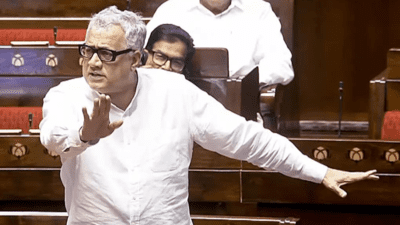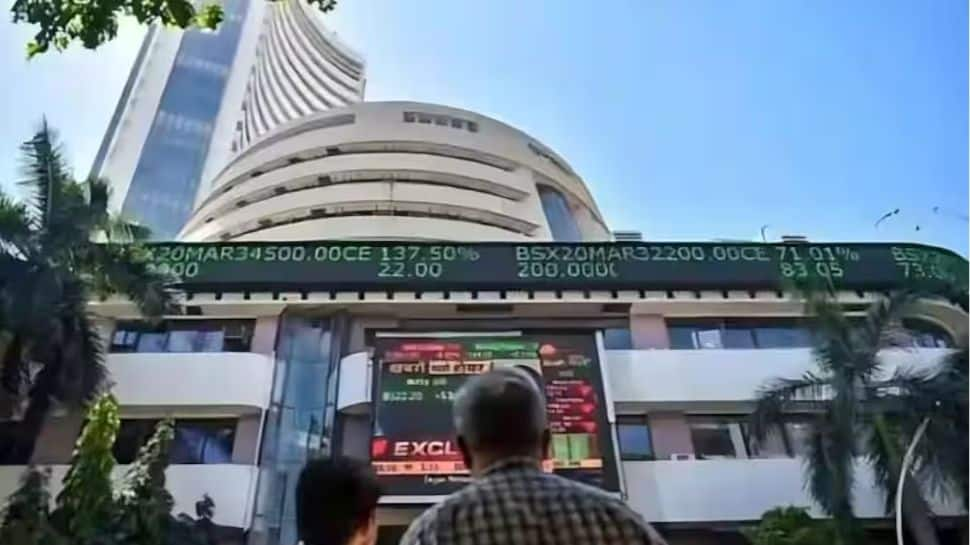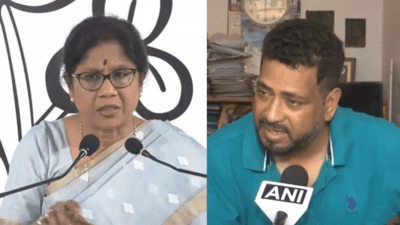What the Centre is planning to light up clean power
New Delhi: The central government will hold talks with stakeholders to push the adoption of uniform tariffs for renewable energy, two people aware of the development said. Uniform renewable energy tariffs or URETs were first proposed by the Centre in October 2023, but haven’t been implemented yet as power is a concurrent subject and would require states to come on board.
The development assumes significance in the backdrop of delays in signing of agreements between power developers, procurement agencies and distribution companies (discoms), which has held back procurement of clean power, especially solar, by discoms even as its installed base has continued to grow.
Currently, about 30 giga watt (GW) worth of PPAs are lying unsigned, according to the people cited above. This had reached a high of 55GW last November, per a report from JM Financial.
“Discoms have some reservations regarding URETs,” said a government official, one of the two people mentioned above, requesting anonymity. “The Centre would hold stakeholder consultations soon to understand what exactly is their apprehension and what kind of changes and clarifications are required. After this, we would see more PPAs (power purchase agreements) being signed.”
Renewable power developers sign PPAs with procurers such as Solar Energy Corp. of India (SECI), NTPC Ltd, NHPC Ltd, or Satluj Jal Vidyut Nigam Limited. These power buyers then sign power sale agreements (PSAs) with distribution companies or discoms to take the power to industry and homes.
Delays in signing agreements could make power from older projects unattractive, as newer ones with lower tariffs keep coming online.
Some options being considered by the Centre include getting prior commitments from states, which own the discoms, for PSAs before coming up with new bids, and halting new bids before a certain number of unsigned PPAs are signed.
This is how the URET would work. Grid Corporation of India Ltd, which would be the implementing agency for the mechanism, will set a uniform pooled tariff for power from central pools, which would be revised from time to time based on discovered tariffs from auctions.
Then, intermediaries such as Solar Energy Corporation of India (SECI) and others will sell power from the central pool to all end procurers including discoms at the uniform tariff.
An official with a discom said on condition of anonymity that tariffs from several projects would be pooled to come up with a uniform tariff that would be revised from time to time with tariffs discovered for new projects.
But if tariffs for new projects are higher than the current uniform tariff, that would lift the uniform tariff as a whole. This in turn will increase cost for discoms even for ongoing power supply under older PPAs, the official said, adding that “the visibility of tariffs is an issue”.
Queries emailed to the spokespersons of MNRE and SECI remained unanswered till press time.
The delay in signing PPAs comes at a time when the Centre has set a target for installing 50GW of green power every year till 2027-28. On 15 August last year, Prime Minister Narendra Modi reiterated India’s ambitious goal to achieve 500GW of non-fossil-based energy capacity by 2030.
The Centre wants states to sign PPAs as it would also help them in meeting renewable power obligations (RPOs), which if not complied with, will attract penalties for discoms. Renewable power obligation (RPO) or renewable consumption Obligation (RCO) is a mechanism notified under the Energy Conservation (Amendment) Act, 2022 by which the designated consumers, largely discoms, are obliged to consume a certain percentage of electricity from eligible non-fossil sources, as a percentage of their total consumption of electricity.
Vikram V., vice president & co-group head for corporate ratings at Icra Ltd said demand, grid connectivity and cost are key factors for signing PPAs. “Implementation of uniform tariffs is expected to discourage discoms from postponing signing of PPAs in expectation of fall in tariffs, thereby taking care of the cost factor,” he said.
Mint earlier reported about India’s depressed green energy price scenario weighing down the country’s installed and pipeline renewable merchant power capacity of around 3GW, which has entailed investments of around ₹15,000 crore.
The development assumes significance given that solar power has been the mainstay of India’s green energy transition trajectory. India has an installed renewable energy capacity (including large hydro capacity) of 271.5GW, of which solar power accounts for 110.9GW. For perspective, the country’s total installed energy capacity including fossil sources is 472.46GW.







